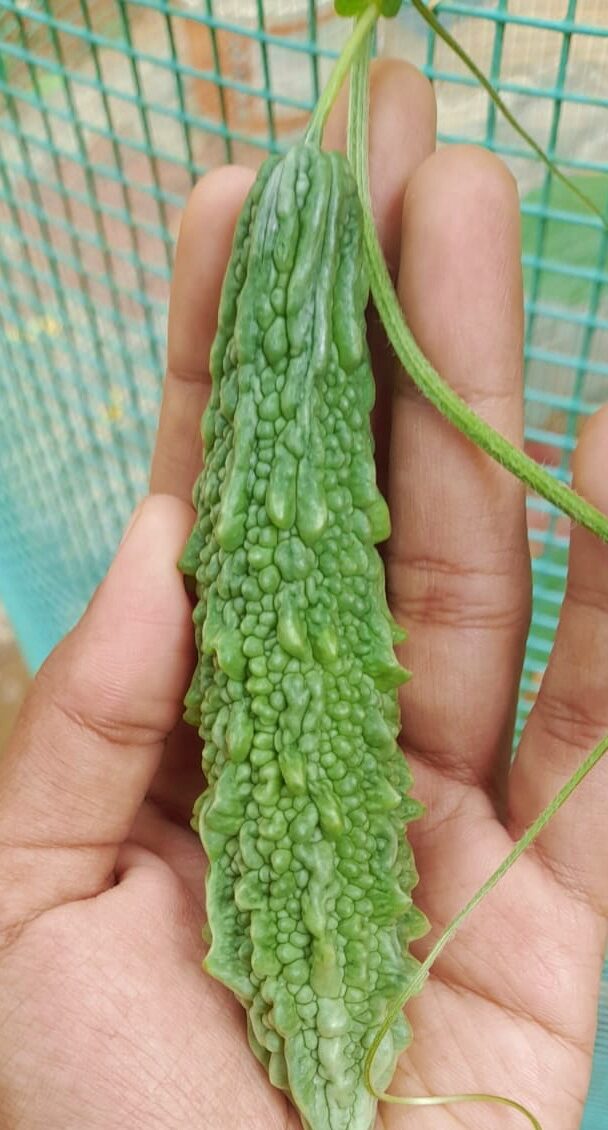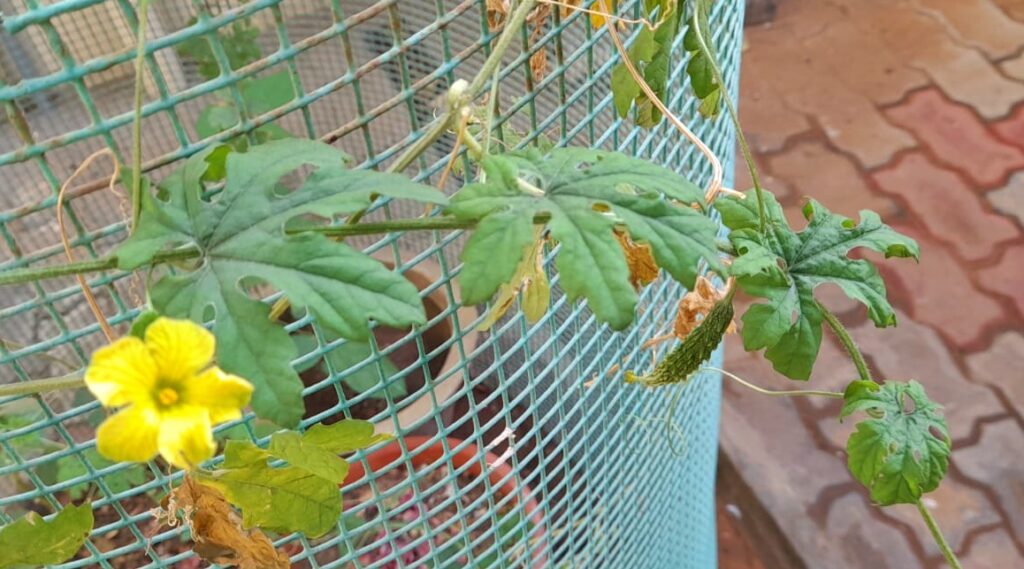How to grow bitter melon from seeds in containers.

Bitter melon or Bitter gourd is a tropical vine that belongs to the family Cucurbitaceae. There are several varieties of bitter melon that vary in shape and size. This vegetable grows up to 5 feet. It grows in a warm and humid climate. It is rich in Vitamin C, Vitamin A and Folate. It contains small amounts of Potassium, Magnesium and Zinc.
Growing Conditions for bitter melon

It is easy to grow bitter melon in containers. It is best to sow the seeds directly in the containers as transplanting the seedlings from the seed tray can harm them. You will need a container that is at least 16 inches deep. You can grow one bitter melon plant in a pot. The optimum temperature needed for bitter melon to grow is between 15°C to 20 °C (59°F to 68°F). You will need a trellis to grow it.

How to grow bitter melon in containers
- Take a container that is at least 16 inches deep and has proper drainage holes in the bottom. Fill it with potting mix that contains 10 % perlite ,10% vermiculite, 20 % coarse sand and 60 % organic compost.
- Sow the seeds directly in the container half inch deep. Soaking the seeds overnight before sowing them can speed up the germination process.
- You will see the seeds germinating within a week. Keep the container in a place that receives at least 6 to 8 hours of sunlight every day. You can water the plant when the soil becomes dry.
- Place a trellis so that the vines can use the trellis as a support to grow.
- Bitter melon starts to flower within 55 to 60 days. During the flowering season, you can add compost or liquid fertiliser to your plants once in 2 weeks. You must harvest them before they turn yellow and become inedible. The best time to harvest them is when they are neither too big nor too small.
Pests and Diseases
Bitter melon can get attacked by pests such as Aphids and fruit flies. You can save them from these pests by spraying neem oil regularly.
Read more:
- How to grow okra from seeds in containers.
- How to grow hot peppers from seeds in containers.
- How to soybeans from seeds in containers.
- How to grow spinach from seeds in containers.
